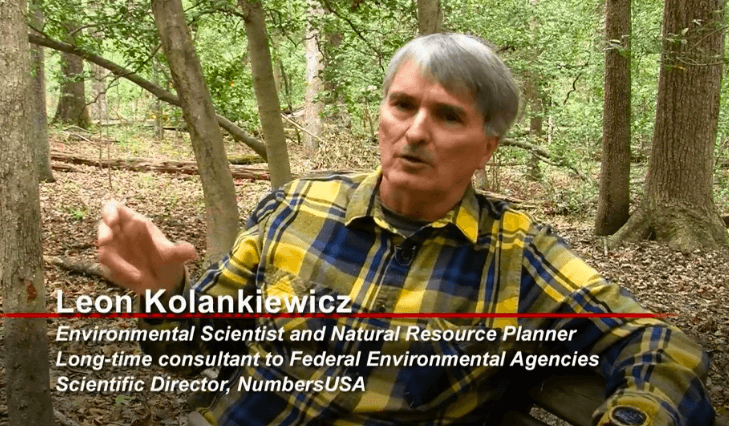Basic Freedoms
Four out of five Americans say the area where they live either has enough people living there, or is already too crowded.

In a recent CBS News poll (May 2023), Americans were asked about population density where they live, and whether or not their areas needed more people. Almost a third of Americans said the area where they live is “too crowded, with more people than it can handle,” while a majority said “It’s about the right amount.”
Only 16 percent of Americans said the area where they live needs more people.
Between 2001 and 2019, urban sprawl chewed up more than 14,000 square miles of open space, while our population jumped from 285 million to 329 million.
The U.S. Census Bureau predicts that America’s population will grow by another 70 million in the next 40 years, with immigration accounting for roughly 90%.
But rather than changing course, our federal government, and some states, are responding by doubling-down and promoting even more population growth and development.In an effort to mitigate some of the tradeoffs associated with sprawl, state and local officials around the country are undertaking efforts to circumvent home-rule decisions on land use and promote higher-density housing. (This isn’t limited to America; see how a surge in immigration has impacted housing in the United Kingdom.)
High-density living does mitigate the impact of urban sprawl, although many Americans prefer a different lifestyle. Mitigation is not the same as prevention, however, and these proposals carry their own trade-offs, including fewer options for how Americans wish to live.
“People will lose a lot of freedoms to be able to live close to country – the wild country – or wildlands, or open space that they can easily access,” says NumbersUSA’s Leon Kolankiewicz in an episode the long-running, Emmy-winning show Discovering Alabama — hosted by Dr. Dough Phillips and associated with the University of Alabama Museum of Natural History. “They will see a lot less wildlife. There will be a lot fewer opportunities for hunting and fishing that is desirable, that doesn’t have someone standing 10 yards on either side of you firing a gun or casting a rod.”

Questioning unfettered growth is not “only about saving nature,” says Phillips, “it is also about saving basic freedoms.”
The CBS poll shows strong majorities of Americans – regardless of party identification, race, or ideology – would prefer not to accommodate additional growth.

Immigration policy is the sole driver of long-term population growth in the U.S. – adding the equivalent of an LA County every 39 months. A more sensible policy would regulate immigration to make housing more affordable, communities less crowded, and leave future generations the freedom to choose an urban, suburban, or rural lifestyle as they see fit, without losing another 14,000 square miles to urban sprawl.
And now for the pollinators…
Karen Shragg observed National Pollinators Week with a plea to all the bug lovers out there to have the courage to connect the dots between immigration-driven population growth and the decline of insects in the United States:
Now the drivers of mass immigration are complicated. They are historical, political and sociological. Some look only at the need for workers and see increased immigration as a solution. Others see a way to save money by paying lower wages and still others see some of the desperation and immediately want to reach out and help. Still others believe that we are being hysterically xenophobic by saying we are full, as has been our pattern throughout history.
“But when you take several steps back you can more easily see that to preserve the American landscape, to honor life-giving keystone species and protect our water supply, we must get off the growth train.”
JEREMY BECK is a V.P., Deputy Director for NumbersUSA
Take Action
Your voice counts! Let your Member of Congress know where you stand on immigration issues through the Action Board. Not a NumbersUSA member? Sign up here to get started.
Donate Today!
NumbersUSA is a non-profit, non-partisan organization that relies on your donations to works toward sensible immigration policies. NumbersUSA Education & Research Foundation is recognized by America's Best Charities as one of the top 3% of well-run charities.
Immigration Grade Cards
NumbersUSA provides the only comprehensive immigration grade cards. See how your member of Congress’ rates and find grades going back to the 104th Congress (1995-97).